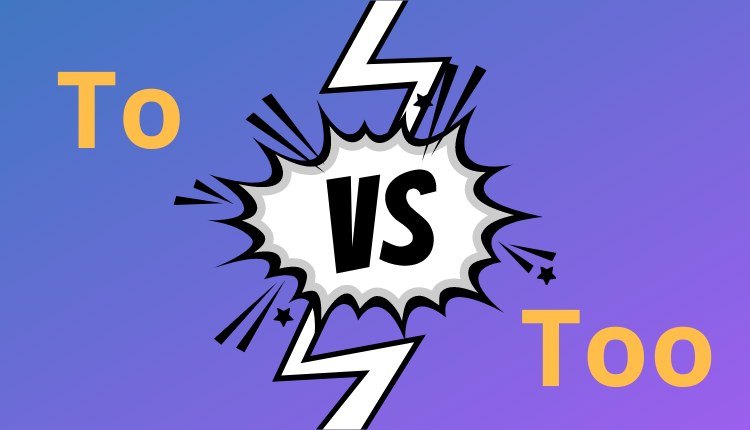Imagine this: Your friend calls you and says, “Hey, Stacy! I’ve called to invite you home tomorrow. Jacob will be there too.”
If you know what these homophonic words, ‘To’ and ‘Too’ mean, you’ll understand what your friend is saying, and if not, you’ll be thinking, “Jacob will be there to…? Well, that’s a weird way to end a sentence!”
‘To’ and ‘Too’ are the most commonly confused English words as they sound the same, have similar spellings, but have entirely different meanings.
Table of Content:
When should you use ‘To’?
‘To’ is a preposition. It is used in the following scenarios.
- Indicating direction of movement
I am going to Las Vegas on Thursday.
- Demonstrating an objective
I want to build a successful brand.
- Showing possession or inclusion
This thesis belongs to me.
- Indicating time
You will be able to finish this task in 20 to 30 minutes.
When should you use ‘Too’?
‘Too’ is an adverb. Unlike ‘to,’ it has limited use cases, such as
- Replacing the words “also”, “including”, “as well as”, etc.
‘I like writing and editing. I also enjoy proofreading’ can be written as ‘I like writing and editing. I enjoy proofreading too.
- Signifying something extreme, or a lot
He spends too much time reading research articles.
Since ‘to’ and ‘too’ have the same pronunciation, there’s no scope of confusion when using them in your speech. When writing, you have to think of the context before using ‘to’ or ‘too,’ and you’ll never mix the words again!

